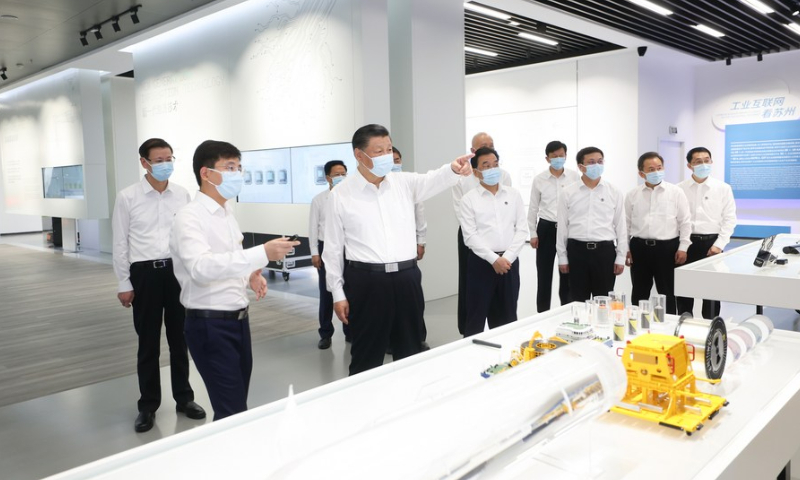Chinese President Xi Jinping focused on scientific and technological (sci-tech) development during an inspection tour of East China’s Jiangsu Province from Wednesday to Friday, stressing that the key to Chinese modernization lies in the modernization of science and technology.
In Nanjing, the provincial capital of Jiangsu, Xi visited the Purple Mountain Laboratories, where he inspected a 6G comprehensive lab, among others, to learn about efforts to make major sci-tech breakthroughs, according to the Xinhua News Agency on Friday.
Inspecting NARI Group Corp, Xi learned about the enterprise’s efforts in developing core technologies related to grid security and power supply. He encouraged young researchers at the company to make breakthroughs in cutting-edge technologies.
In Suzhou, a major industrial hub in Jiangsu, Xi visited the Suzhou Industrial Park, where he emphasized the crucial role of hi-tech parks in achieving self-reliance and self-strengthening in science and technology. He also highlighted the importance of fostering new industries and accelerating industrial upgrades by leveraging new technologies, according to Xinhua.
Sci-tech self-reliance and self-strengthening has become a top priority for China, as it pursues high-quality development and Chinese modernization. The efforts in sci-tech innovation come amid a global race for cutting-edge technologies, with certain countries like the US even resorting to protectionism and unilateralism to maintain their lead.
The latest inspection tour and remarks from Xi underscored China’s firm resolve to achieve industrial upgrading and sci-tech self-reliance amid the US’ escalating containment of and “decoupling” from China, Tian Yun, a Beijing-based economist, told the Global Times on Friday.
Located in the Yangtze River Delta region, Jiangsu is one of the most developed provinces in China in terms of manufacturing. Jiangsu also has a leading position in the country’s sci-tech innovation and industrial upgrading, and has seen fruitful outcomes in a variety of aspects, Tian said.
It would be a giant leap in the country’s goal of breaking the US tech blockade if the region could achieve major sci-tech innovations and industrial upgrading, he said, noting that this would also contribute to the long-term healthy development of the Chinese economy.
(Global Times)




